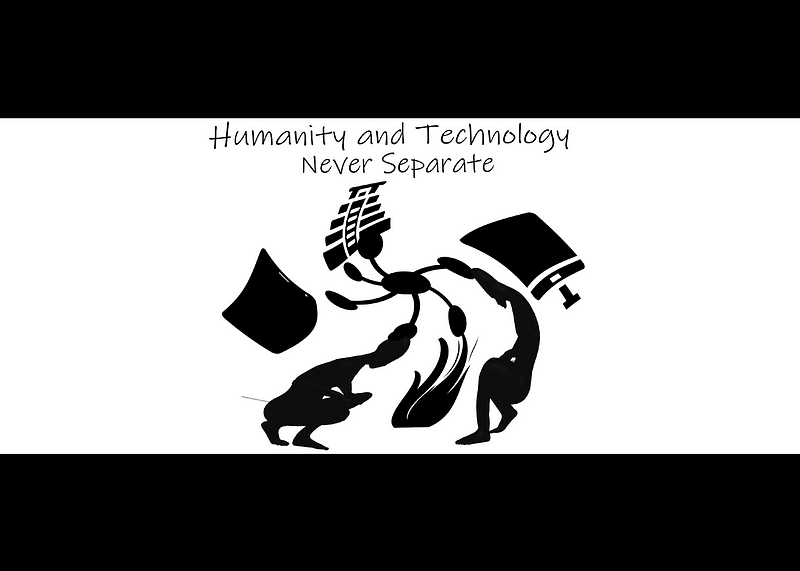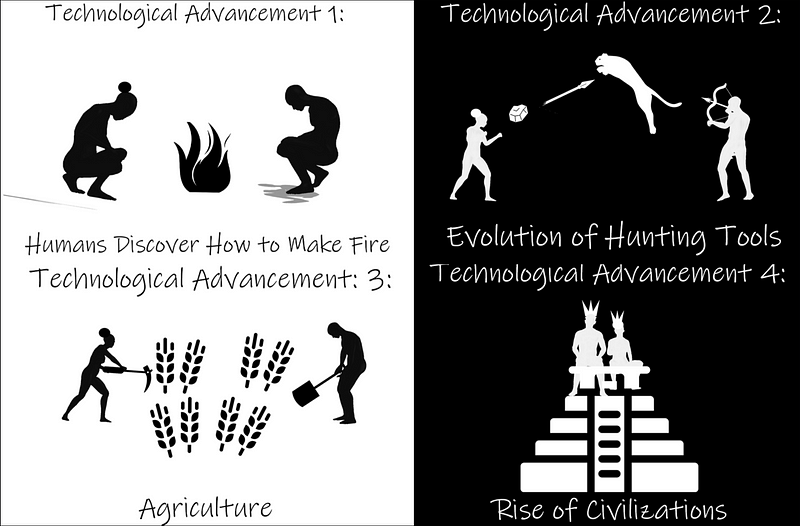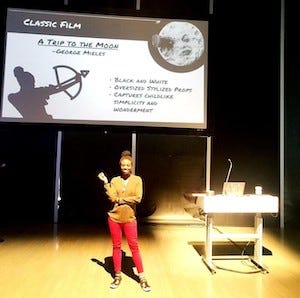Humanity and Technology Are Never Separate

Western civilization has a view of technology as being a force that exists outside of the organic realms of humanity. After all, much ado is made about putting the “humanity back in technology.” The theme for 2017’s MIT Hacking Arts festival was about humanity, and many discussions, think pieces, roundtable discussions, and brainstorming sessions have been penned and discussed on this very topic.
In a recent interview with The Economist, the co-author of Re-Engineering Humanity, Brett Frischman, said:
Technology re-engineers humanity in part by affecting human capabilities and in part by shaping and constituting our values, beliefs, and shared commitments. Like the proverbial frogs in slowly warming water, we’re gradually being led to accept a world governed by supposedly smart tech. For the sake of convenience and cheap bliss, we surrender ourselves, follow scripts, and risk becoming indistinguishable from simple machines.
This point is both eloquently stated and alarming. There can be nothing more disheartening than to imagine a future in which the very thing that allows us to call ourselves human is stripped away by the cold mechanical arm of depersonalization, and the very zest and vibrancy of our species is dulled down into a rote puppet show. Here we are, at the precipice of the next stage of human evolution, and we get to decide which direction it takes: Whether it enhances us, or whether it takes us down a path to destruction.
However, as those charged with shaping the unfolding of technology, we would be remiss in overlooking a vital detail in the story: humanity and technology have never been separate to begin with. If you look along the timeline of the human journey, you will see that technology has always evolved in lockstep with the human race — in fact, it has been a necessitating factor that influenced it. Every leap forward in technology has always come alongside a need to improve our current conditions, and build a better and less uncontrollable future.
These needs to provide a better condition for the next generation, in turn allows that generation to live in a way that was never before possible, which is a form of evolution in itself.
Humans evolve alongside technology
Let’s examine the major milestones along the human journey, beginning with the first major technological advancement: the discovery of how to make fire.

Imagine a time when you are shrouded in darkness. Cold, alone, afraid. You are at the barest and most stripped down version of yourself. The absolute lowest, nearly at the bottom of the food chain. The only meals you can eat are those that are foraged; meat is a gamble, and staying in one place is nearly impossible when you have to spend your nights running and hiding from predators. While at this point you are technically and biologically a modern human, through the classification of Homo Sapiens, the way in which you conduct your life is far removed from what we now think of as modern.
It wasn’t until someone figured out the mechanical action of making fire that the human race was able to take its first giant leap forward. In fact, the ability to cook our food is credited with a rapid increase in the size of the human brain, a biological evolution that took place alongside a technological advancement.
The history of humanity is paved this way.

You would be hard-pressed to find a major milestone along the human journey that didn’t begin with a technological breakthrough. Figuring out how to effectively hunt for prey involved a series of tested and tweaked advancements befitting any modern day scientist or engineer. The process of going from using blunt objects that could be found freely in one’s environment, such as rocks, to crafting a tool that could more effectively be thrown—and used to hunt bigger and more dangerous game—shouldn’t be overlooked as a significant technological accomplishment.
These hunting tools became ever more sophisticated, from spears, to atlatls, to bows and arrow. Eventually, these increasingly complex ways of hunting lead to our increased status as apex predators at the top of the food chain, and, eventually, to where we are today.
Why does it matter?
First and foremost we have the opportunity to acknowledge that the future of technology has an intractable link to the history of the human race. Through acknowledging this fact, we can reframe the way we think about technology, its role in our lives, and the impacts it can have on our future. Instead of thinking of technology as an entity that exists outside of us, we can recast it as an inevitable part of our being—at its core, one of the very things that makes us human.
Secondly, acknowledging that technology and humanity have always developed in tandem can demystify technology. Right now, groups of people who have traditionally been disenfranchised aren’t empowered to interact inside of this space. To ensure that humanity stays front and center as technology evolves, we need to make sure that access and resources are spread more equitably.
An opportunity for narrative shifting
By acknowledging the true originators of technology in indigenous black or brown peoples, we chip away at the assumption that white Silicon Valley entrepreneurs are society’s definitive techies. The outcomes can be absolutely powerful.
We have already seen a glimpse of this with the financial and cultural success of the Black Panther film, the founding of centers for technology in neighborhoods such as Atlanta and Oakland, and even a recent 17-year-old student receiving a full college scholarship on the heels of the film.
 Kalis
Coleman accepts The Black Panther Scholarship onstage from Lupita Nyong’o during The Hollywood
Reporter’s Power 100 Women In Entertainment at Milk Studios on December 5, 2018 in Los Angeles,
California. Jesse Grant/Getty Images
Kalis
Coleman accepts The Black Panther Scholarship onstage from Lupita Nyong’o during The Hollywood
Reporter’s Power 100 Women In Entertainment at Milk Studios on December 5, 2018 in Los Angeles,
California. Jesse Grant/Getty ImagesWe have a unique opportunity as we embark upon telling stories in this powerful new medium to empower those who have traditionally been left behind.
 Charity
Everett talks AR, art, and Storytelling at the Institute of Contemporary Art in Boston
Charity
Everett talks AR, art, and Storytelling at the Institute of Contemporary Art in Boston
Charity Everett is a Creative Technologist and storyteller who is interested in exploring the connection between humanity and technology using art and data viz. Follow her project that mixes XR, storytelling and data viz at www.gobackfetchit.com.
Immerse is an initiative of the MIT Open DocLab and The Fledgling Fund, and it receives funding from Just Films | Ford Foundation and the MacArthur Foundation. IFP is our fiscal sponsor. Learn more here. We are committed to exploring and showcasing media projects that push the boundaries of media and tackle issues of social justice — and rely on friends like you to sustain ourselves and grow. Join us by making a gift today.